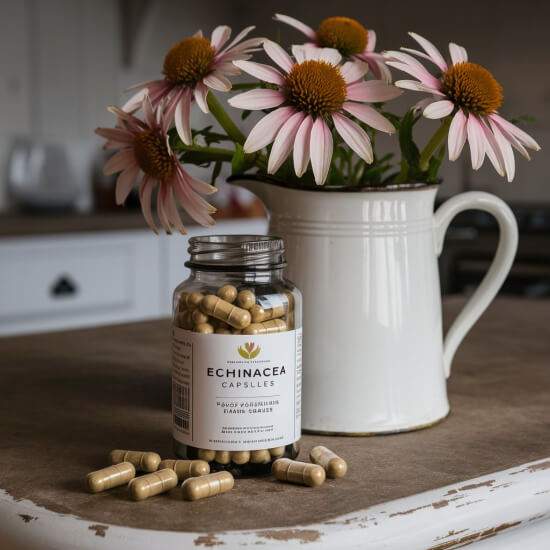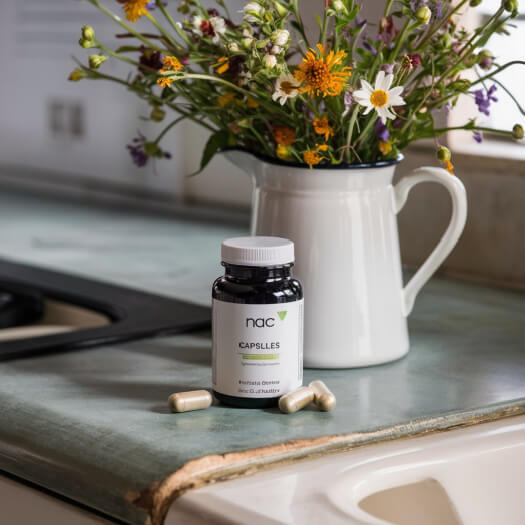Battling Bird Flu: 10 Supplements That May Help

With the world keeping a watchful eye on avian influenza, or bird flu, it’s no wonder folks are curious about how to bolster their defenses against this potentially dangerous virus.
While conventional medicine has a definite role, there’s growing talk about how supplements can also play a supporting part.
So, let’s dive into this topic and explore what the supplement world has to offer in the fight against bird flu.
This information is not medical advice and should not be taken as such. Nothing on this site is intended to diagnose, treat or cure any medical condition. Always consult with a qualified healthcare practitioner if you have, or suspect you have, a medical condition.
Understanding Avian Influenza
First things first, let’s get a grip on what we’re dealing with when we talk about “bird flu.”
Avian influenza is primarily an infection in birds, but some strains have made an occasional jump to humans, causing concern due to their potential severity.
Symptoms in humans can range from typical flu-like signs (fever, cough, sore throat) to severe respiratory distress.
As with any viral contagion, prevention is key, and maintaining a healthy immune system should definitely be part of the strategy.
{Affiliate links included below}
Supplements for Bird Flu: What Could Help
While no one supplement or home remedy is a magic bullet, certain ones in combination might give your immune system a helpful nudge when fighting off this virus.
Here’s a rundown of some popular supplements that are often touted for their potential benefits against viral influenza infections:
1. Vitamin C

Vitamin C is well-known as an antioxidant that’s famous for its immune-boosting properties.
It’s thought to enhance the production and function of white blood cells, which are crucial in fighting off infections.
Some studies suggest that high doses of Vitamin C might reduce the duration and severity of viral infections such as colds and flu.
The form of vitamin C that’s most bioavailable is liposomal vitamin C. This form combines vitamin C with lecithin and phosphatidylcholine for maximum absorption.
2. Vitamin D
Vitamin D is known to work with calcium to build strong bones. But it’s also a true powerhouse for immune health.
Research has shown that vitamin D can modulate the immune response, potentially reducing the risk of respiratory infections.
Given that avian influenza can cause severe respiratory issues, ensuring adequate vitamin D levels seems like a wise move.
The recommended form of vitamin D is cholecalciferol (D3).
Taking vitamin D along with vitamin K may have additional benefits as vitamin K works with vitamin D to shuttle calcium into bones and not soft tissues.
Vitamin K also has beneficial effects with immune function and inflammation.
3. Zinc

Zinc is a mineral that plays a vital role in immune function.
One of its main functions is in the development and communication of immune cells.
Some evidence suggests that zinc lozenges might reduce the duration of colds, with the potential to aid in fighting off other viral infections, including influenza.
Zinc acetate lozenges contain a form of zinc known as “ionic zinc,” meaning it contains positively charged zinc ions.
Lozenges absorb more quickly and can partially bypass the digestive system.
4. Quercetin
Quercetin is a flavonoid found in many fruits and vegetables, renowned for its antioxidant and anti-inflammatory properties.
It’s been studied for its potential antiviral effects, particularly in synergy with zinc.
Here’s how quercetin and zinc can work together to bolster your defenses against viral infections like influenza:
- Quercetin as a Zinc Ionophore: Quercetin can act as a zinc ionophore, which means it helps transport zinc ions into cells. This is important because zinc needs to enter cells to effectively inhibit viral replication. By enhancing zinc uptake, quercetin boosts zinc’s antiviral efficacy.
- Antiviral Properties: Both quercetin and zinc have been shown to have antiviral properties. Quercetin can disrupt viral replication and reduce the ability of viruses to infect cells, while zinc inhibits the replication of a variety of viruses, including the influenza virus.
- Immune Modulation: Quercetin and zinc both support the immune system. Quercetin has anti-inflammatory effects and can help modulate the immune response, reducing excessive inflammation that can occur during viral infections. Zinc, on the other hand, is vital for the proper function of immune cells, including neutrophils and natural killer cells.
As quercetin is not highly bio-available, look for a quercetin supplement that has a phytosomal delivery format that optimizes absorption.
Combination zinc and quercetin supplements are also available.
5. Elderberry

Elderberry has been used for centuries in traditional medicine for its immune-supporting properties.
Modern research suggests that elderberry extracts might have significant antiviral properties, helping to block viruses from entering and replicating in our cells.
While specific studies on bird flu are limited, elderberry’s general antiviral effects are promising.
Black elderberry syrup is an excellent way to benefit from elderberry’s immune-boosting properties.
6. Garlic
Although garlic supposedly wards off vampires, its important role in fighting influenza may be its true superhero status.
Garlic has been shown to have antimicrobial and immune-boosting properties.
Some studies indicate that garlic supplements can reduce the severity of colds and enhance immune function, which could definitely be a plus during any bird flu outbreak.
Fresh garlic may be the best way to take garlic, but if you don’t like the taste, aged garlic extract is also a good choice.
7. Echinacea

Echinacea is a popular herb known for its potential to boost the immune system and to prevent or treat colds.
While more research is needed, some studies suggest it might reduce the severity and duration of respiratory infections.
There are two varieties of Echinacea, Echinacea purpurea and Echinacea angustifolia.
As both forms are believed to have immune-supporting properties, a supplement containing both forms is recommended.
9. Selenium
Selenium is an essential trace mineral that plays a key role in maintaining immune health.
It’s known for its antioxidant properties, helping to protect cells from damage.
Some research indicates that selenium can enhance the immune response and may help the body combat viral infections more effectively.
Additionally, selenium deficiency has been linked to an increased susceptibility to viral infections, making adequate selenium intake crucial for immune resilience.
Look for the selenomethionine form of selenium as it’s the best absorbed by the body.
8. NAC

N-acetylcysteine (NAC) is a supplement that’s been studied for its potential benefits in various health conditions, including respiratory infections like influenza.
NAC is well-known for its antioxidant properties and its role in replenishing glutathione, one of the body’s most important antioxidants.
Here’s a look at the potential benefits of NAC in the context of influenza:
- Antioxidant Properties NAC helps boost levels of glutathione, which plays a critical role in reducing oxidative stress in the body. During infections like influenza, oxidative stress can exacerbate symptoms and damage lung tissue. By mitigating this stress, NAC may help reduce the severity of symptoms.
- Mucolytic Effects NAC acts as a mucolytic agent, meaning it can help thin and loosen mucus in the airways. This can be particularly beneficial in respiratory infections where mucus build-up can obstruct airways and worsen symptoms.
- Immune Modulation NAC has been shown to have immune-modulating effects, potentially enhancing the body’s ability to fight off infections. This includes the modulation of inflammatory responses, which can be crucial in preventing excessive inflammation during severe influenza infections.
One study found that elderly subjects who took NAC had a significant reduction in the frequency and severity of influenza-like episodes.
NAC capsules or tablets are recommended over powder as the powder is acidic and strong-tasting.
A synergistic combination of NAC and selenium is also a good choice.
10. An Immune-Boosting Formula
While each of the supplements discussed above have their own unique benefits in potentially fighting off bird flu, one would have to swallow a lot of pills to benefit from them all.
That’s why some people prefer to take a combination formula that contains many of these immune-boosting nutrients in just a few capsules.
This formula contains vitamins C and D along with zinc, selenium, garlic, elderberry and Echinacea.
It also has several other vitamins, minerals and plant extracts that are thought to help immune function.
This formula also contains vitamins C and D along with K, as well as zinc, selenium, quercetin and Echinacea. It would be a good idea to add some elderberry while taking this formula.
Combining Supplements: A Word of Caution
While it might be tempting to load up on all these supplements, more isn’t always better.
Taking high doses of multiple supplements could possibly lead to interactions and side effects.
It’s always best to work with a qualified healthcare provider before starting any major new supplement regimen, especially if you have underlying health conditions or are taking prescription medications.
The Bigger Picture: Holistic Health for Bird Flu
Supplements could well be an important part of the puzzle to ward off bird flu, but they’re not the whole picture.
Maintaining a healthy lifestyle is fundamental in supporting your immune system.
Here are some additional tips to keep your immune health in prime condition:
1. Balanced Diet
Eating a variety of nutrient-rich foods ensures you’re getting essential vitamins and minerals. Organic fruits, vegetables, grass-fed meats, and whole grains are your friends.
Having trouble getting enough fruits and veggies into your daily diet? Add a superfood powder to water, juice or a smoothie.
2. Regular Exercise

Physical activity is known to boost your immune system. Aim for at least 150 minutes of moderate exercise per week.
A mini trampoline known as a rebounder is one of the best ways to get exercise at home indoors.
3. Adequate Sleep
Sleep is when your body repairs and regenerates, and many of us just don’t get enough quality sleep.
Aim for 7-9 hours of quality restorative sleep each night in order to keep your immune system functioning at top form.
Having trouble falling asleep or staying asleep? Learn about the hidden tongue nerve that controls your sleep.
4. Stress Management
Chronic stress can weaken your immune system. Find healthy ways to manage stress, whether it’s through prayer and meditation, hobbies, massage, or social connections.
Final Thoughts on Supplements for Bird Flu
In the quest to protect ourselves from avian influenza, or any viral infection, supplements can offer supportive benefits.
However, they should be viewed as part of a broader approach that includes a healthy lifestyle including a nutritious diet, exercise, and quality sleep.
Remember, there’s no magic pill to ward off bird flu. But a well-rounded strategy can help keep your immune system in fighting shape. Stay informed, stay healthy, and take care of yourself!






